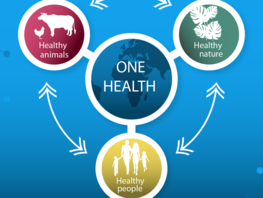The use of contraceptives among women in Kyrgyzstan is decreasing. Baktygul Bozgorpoeva, director of Family Planning Alliance Public Foundation, told 24-kg.com news agency.
She noted that ten years ago about 35 percent of women used birth control. Today, that number has dropped by 15 percent, indicating that many women either do not use any contraceptive methods or rely on natural methods or abortions.
One key factor behind this decline is the high cost of contraceptives. Until 2015, Kyrgyzstan received free contraceptive supplies from the United Nations Population Fund (UNFPA).
«Currently, the Ministry of Health allocates 12.5 million soms annually to purchase contraceptives—such as pills or intrauterine devices (IUDs)—only for women in high-risk medical and social groups for whom pregnancy is not recommended. Only around 120,000 women receive contraceptives free of charge, while the country has approximately 1.8 million women of reproductive age. Not everyone can afford them. For example, hormonal pills cost about 600 soms per month, and an IUD can cost up to 12,000 soms,» Baktygul Bozgorpoeva said.
She also noted that the lack of access to contraception and failure to observe recommended intervals between pregnancies results in nearly 9 percent of women giving birth twice within a year.
This significantly increases the risk of maternal mortality due to inadequate recovery time. A large proportion of women in Kyrgyzstan suffer from anemia.
Bozgorpoeva emphasized that family planning is not about limiting births but is a key component of reproductive health.
«Observing the proper interval between births allows women to give birth to healthy, wanted children and protects their own health and lives,» she said. «If a woman marries at 20 and follows a 2—2.5-year interval, she can safely have seven to eight children by the age of 45–49.»
She added that Kyrgyzstan lacks a culture of contraception. Many people are unaware of the different types of contraceptives or how to use them properly, which often leads to unplanned pregnancies. Overloaded doctors may not have the time to provide women with comprehensive information.
«To give birth to a healthy generation, we need an institution of family, family planning offices, parenting schools, where preparation for pregnancy and childbirth will be conducted. Not only health workers, but also social workers and representatives of other departments should be involved in this issue,» Baktygul Bozgorpoeva summed up.






